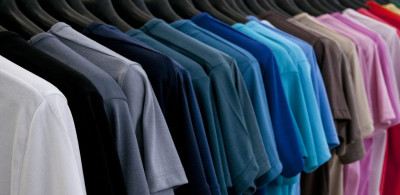Clothing worn in Canada often comes from other countries; the same is often true for fabrics. As an importer, you’ve probably already asked yourself the question: do I have to pay customs fees for importing fabrics or clothing? In the next few lines, we will present some points to keep in mind when importing textiles into Canada.
Do I have to pay customs fees?
First, it should be noted that fabrics and clothing are classified in the Customs Tariff under Section XI: Textiles and Textile Articles. You will find between chapters 50 and 60 all fabric products and between chapters 61 and 63 finished products (clothing and other made-up textiles articles). As a general rule, with a few exceptions, fabrics are duty-free. Clothing is usually dutiable at 17% or 18%, but most baby clothing is duty-free. In addition, it is possible to avoid paying customs duties for clothing if certain conditions are met.
Is imported clothing eligible for an agreement?
In order to benefit from a reduction or exemption from customs duties, you must ensure that imported clothing is manufactured, under certain conditions, in a country that is part of a free-trade agreement with Canada, or in a country that receives preferential treatment (e.g., least developed country tariff). In the Customs Tariff, you will find all the agreements listed under “Applicable Preferential Tariff.” For example, when an agreement indicates “Free,” it means that the clothing in question is duty-free, if it is indeed “originating” according to specific rules of origin to the agreement in issue.
In order to obtain a reduction or elimination of duties, you must certify that the clothing imported into Canada "originates" in a country that is part of the agreement. You must also be able to prove that the items were shipped directly to Canada from the beneficiary country without being imported into a third country beforehand.
What is the difference between the country of export and the country of origin?
The country of export of the garments is the country from which the garments are shipped. The country of origin is the country where they are manufactured or the last country where they have undergone substantial processing to be considered as originating in that country. For example, clothing may be shipped from the European Union without necessarily having been manufactured or substantially processed there. In this case, they do not originate in the European Union. On the other hand, you could import clothing that originates in the European Union, according to the rules of origin of the free trade agreement, but is kept in stock in the United States before being exported to Canada. If the European clothing is not stored under U.S. customs control while in the United States, you lose the benefit of a preferential free-trade treatment in Canada because the direct shipment rule is not respected.
In the case of the Comprehensive Economic and Trade Agreement (CETA), if you import clothing from European Union member countries, but it is made from fabrics or materials not originating in a CETA territory (e. g. non-Canadian or non-European materials), it may still be possible to qualify the clothing under alternative rules of origin (origin quotas) and thus not pay customs duties. However, not all types of clothing are covered by these quotas and once the annual quantities of the targeted quotas are fully utilized, the regular duty rates apply. Some quotas also require an import permit.
Get help from custom experts
As you have seen, the customs duties to be paid for the importation of clothing depend greatly on the country from which it originates and the country from which it is shipped. Sometimes it can be difficult to determine whether a garment is eligible for an agreement and whether a specific import permit or certification of origin is required.
For any additional information, our consultation service remains at your disposal at consultations@w2c.ca or by telephone at 514 368-2637, option 2.

